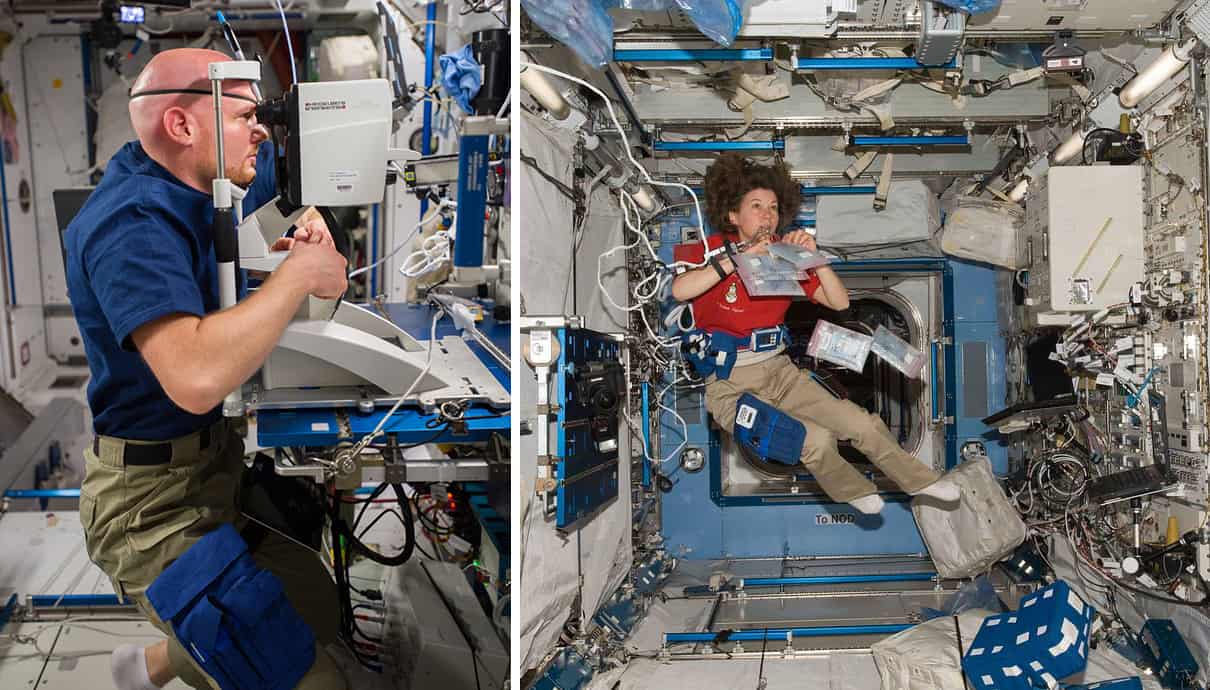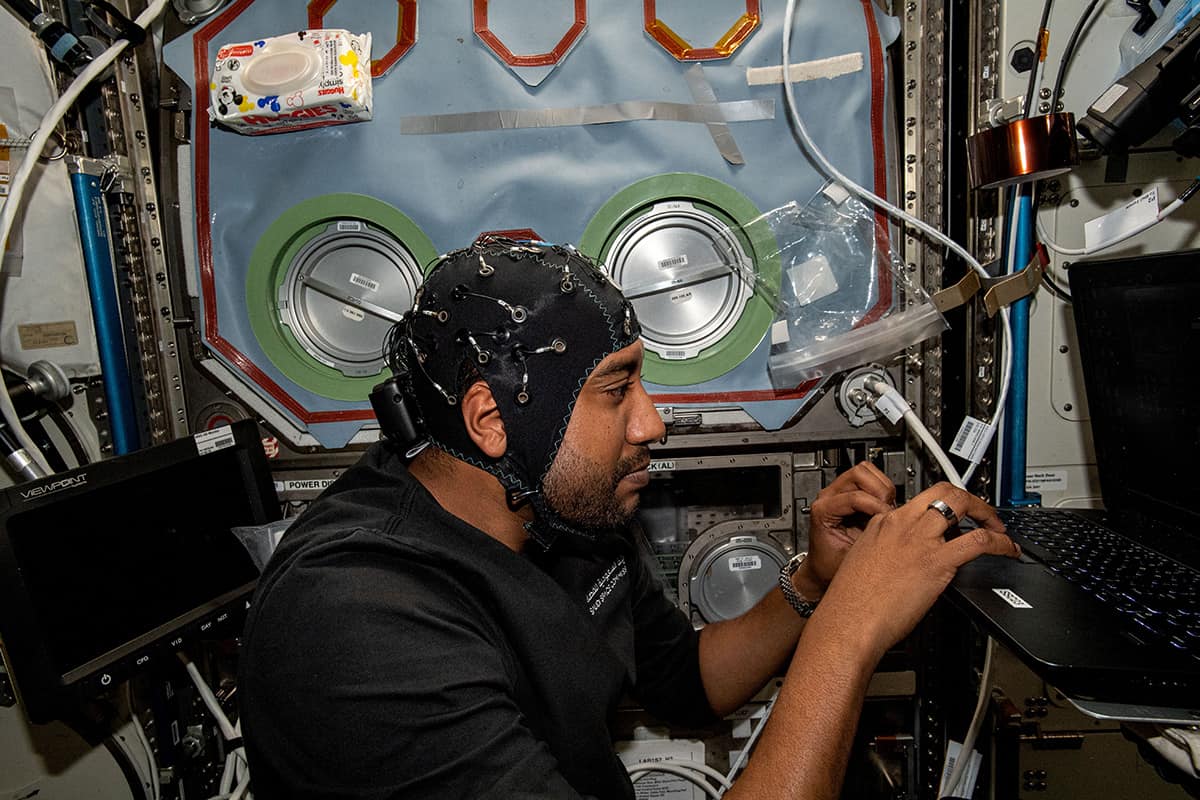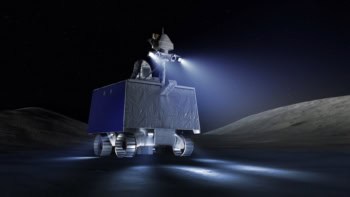Biomedical ethicist Vasiliki Rahimzadeh speaks to Tami Freeman about why the rapid growth of the commercial space sector makes it imperative that we develop a universal code of ethics for doing scientific research on human subjects in space

Scientific research on humans in space is crucial if we are to make future space flights as safe as possible, and it can also help address important health issues here on Earth. Organizations such as NASA, the European Space Agency (ESA) and others around the world perform such studies under clear ethical research guidelines. But for commercial space flights, which are becoming more and more prevalent, the rules are less clearly defined.
Over the coming decades, these commercial companies will be looking to fly thousands of passengers and workers into space, and they will all have the opportunity to participate in research. For this to happen, however, it’s essential to develop clear ethical guidelines for these human studies.
With this in mind, a panel of experts recently published a policy paper titled “Ethically cleared to launch?”, which provides guidelines to ensure space-based research on humans is as safe and productive as possible (Science 381 1408).
The lead author of the report is biomedical ethicist Vasiliki Rahimzadeh, who is currently at the Center for Medical Ethics and Health Policy at Baylor College of Medicine in Houston, Texas, US. She talks to Tami Freeman about how the paper came about, what its main messages are and why ethical spaceflight is so important.
The policy paper came out of a workshop held to discuss the potential ethical concerns associated with research performed during commercial space flights. What or who prompted this workshop – and why was it needed?
Baylor College of Medicine has one of the few space medicine programmes in the US, so naturally it is involved in a lot of research on humans in space. The idea for the ethical framework came from a research ethics consultation my colleagues and I did for Baylor’s Translational Research Institute for Space Health (TRISH). We were looking at the ethics of recruiting healthy volunteers for a study on intracranial pressure in space flight, which involved commercial space flight companies.
While writing up the study, we found that the rules and regulations governing human research in space are different depending on whether it is sponsored by a government or space agency, or a commercial space flight company. We identified a need to bring together this multi-stakeholder group – comprising US regulators, bioethicists, space lawyers, former astronauts and space medicine physicians – to come up with consistent ethical guidance. We embarked on evaluating what principles and practices should be carried over from existing policies, and what new ethical issues had to be considered in the context of commercial space flight.
The framework is really needed on at least two accounts right now. The first is that in the US, the Federal Aviation Administration (FAA) is reviewing new flight regulations for safe commercial space vehicles. In October 2023 the agency was given a three-month extension to its “learning period”, during which its ability to regulate safety measures for commercial flight participants is limited.
Second, the US is set to decommission its involvement in the International Space Station (ISS) by 2030. The ISS is still the only collaborative low-Earth orbit research hub among spacefaring nations, and the move to leave it is paving a direct path for commercial space flight companies to fill in this gap. Indeed, companies are racing to secure government contracts to build new space stations in the ISS’s stead, so we expect lots of human research to be conducted.
The framework your team developed has four key principles, the first being social responsibility – in other words, those who have the privilege to travel in space should contribute to research that benefits all of society. Do you think passengers on commercial space flights will want to take part in research studies?
I think many will consider it. It’s incumbent on the research sponsors as well as the researchers themselves to be transparent about both the benefits of participating, and the heightened risks from the significant scientific uncertainty regarding how the human body functions in space long-term.
The risks of the research are highly protocol-dependent, just as they are on Earth. They could range from minimally risky – such as an observational study that simply requires some sort of self-monitoring, or a minorly invasive one that involves blood draws or other biospecimen collection – to highly risky studies, like the intracranial pressure case I mentioned earlier.

Do you think there’s a risk of people agreeing to take part in research just so they can get their trip into space?
It’s an important question, and the quick answer is yes – especially considering that commercial crews are poised to fly many different kinds of people with different motivations, from paying customers to former astronauts to employees of commercial companies themselves. In our field, we refer to this ethical issue as “undue inducement”. We commonly face this in terrestrial clinical trials, where the benefits of participating in research (for example, payment) can’t be so great that it fundamentally alters how somebody would normally make decisions in the face of the risks involved.
In our paper, we propose ways of avoiding undue inducement. These include recruiting people to participate in research studies and missions who would already be going to space, as opposed to offering what might be considered an excessive benefit to travel to space simply for research purposes.
The second principle is scientific excellence. What sorts of experiments do you see future space travellers participating in? And are these going to be different from the studies that astronauts are performing today?
We should expect to see studies that attempt to answer lingering questions about how humans can thrive in space environments long-term. In September 2023 NASA astronaut Frank Rubio broke the record for the longest space mission by a US astronaut after spending 371 days in space. Given that it will take nearly seven months to reach Mars and at least that long to return, future studies will really need to focus on how to sustain human life in space for longer.
The studies I find particularly compelling are those that look at human behaviours, psychology and mental health on long-duration space missions. They look at questions like, “what do crews on a mission do if someone dies?”, “what do they do if someone has appendicitis?” and “how do we ensure the safety and welfare of people with various disabilities who have different clinical needs?”. We need to address these to make space flight and long-duration missions safer for everyone.
The third principle in the policy paper is proportionality – maximizing the value of the study while minimizing harm to participants. What sort of increased risks are there compared with similar studies performed on Earth?
Proportionality refers to the realistic balancing of known or foreseen risks with the anticipated benefits. Space flight – even though we’ve made huge strides in the engineering and human physiology of it – remains a really high-risk, high-reward endeavour. In the paper, we argue that the add-on risks of research participation should be evaluated against the baseline risks of space flight itself.
First and foremost, there are the environmental exposures – namely zero gravity and radiation – that are substantially different in space than on Earth. The lack of load-bearing weight on muscles due to zero-gravity environments can lead to muscle atrophy and bone-density weaknesses, while increased radiation heightens risks for all types of cancers. Another considerable risk that’s not often considered is the impact of isolation on mental health and emotional well-being.

The only way we’re able to assess and characterize these risks is with data generated from studies. These are our most valuable resource, providing important insight into the extent of those risks.
The incredible time, resources and sacrifice needed to gather just one data point justifies sharing the data whenever possible. There are therefore additional risks that have to be considered around privacy and confidentiality – especially when crews are small. There is a worry that with such small data sets, we cannot make the same assurances for data privacy compared with larger studies that share aggregate data, and therefore the chance of re-identification is higher.
Nevertheless, sharing high-fidelity data from rigorously designed and executed studies really benefits the entire industry, especially in a competitive market space like commercial space flight.
Finally, the fourth guideline is described as “global stewardship”. Can you explain what that means?
At present there are obvious inequities around who gets to go to space, what scientific questions get prioritized in research, and who ultimately makes those decisions. We’re people on one planet, in one solar system within what we think is an ever-expanding universe. But the research we conduct must be representative of humankind’s diversity as we know it in order for that research to truly benefit everyone.
Global stewardship refers to the responsible use of time, data and natural resources to learn more about space and our place within it. It means focusing on questions about how prolonged human presence in space will affect other planetary resources, life forms and environments we have yet to discover.
We borrowed the concept of global stewardship from other disciplines, such as environmental science and conservation studies, as they have great relevance for guiding responsible human exploration in space. Global stewardship really conveys the sense of collective responsibility for the resources we take up to expand this frontier, while being mindful of how resource investments in space will affect us here on Earth now and in the future.
But how can you ensure that commercial space flight companies stick to these four principles? Could they be written into law, or do you think companies will create their own guidelines based on your suggestions?
You’ve actually outlined the next phase of our research. We’ll be looking at how we entrench these best practices in not only regulation but also guidelines, so that commercial companies can demonstrate in good faith that their research is both scientifically and socially valuable. At present, there are different arms and policy levers that can be used to incentivize commercial companies and other stakeholders to adopt some of these practices.

Biomedical ethicist calls for rules governing human research in commercial spaceflight
Regulation is one such incentive. I think with such an emerging competitive industry, there are a lot of eyes on these companies at the moment. It’s therefore in their best interests to be transparent with the public about what studies they are doing, if any, and the results of those studies. I think the court of public opinion will be the strongest motivating and incentivizing factor for adopting the rules at present. But we’re continuing to ask this question, and this issue of accountability is one we’ve discussed at length.
Are you continuing to work with some of these commercial space flight companies?
Not at the moment, but we are always looking to collaborate.
Looking ahead, how do you think commercial space flight will grow over the next decade?
In our lifetime we’ll witness more and more advanced research missions that fly further and further into our solar system, and I think the commercial space flight industry will expand, both in the number and the sophistication of launches. With artificial intelligence and machine learning, we’ll be able to get a better understanding of what changes happen to the human body, even at the molecular level in real time, and personalize risk calculations for anyone who wishes to travel to space. Scientific and technological innovation will expand considerably with greater commercial industry involvement, as well as our understanding of the built environment within space vehicles.
Finally, do you see yourself ever taking part in a commercial space flight?
I do actually. So Elon or Jeff, if you’re listening, I’m ready to be the first astro-ethicist in space.



